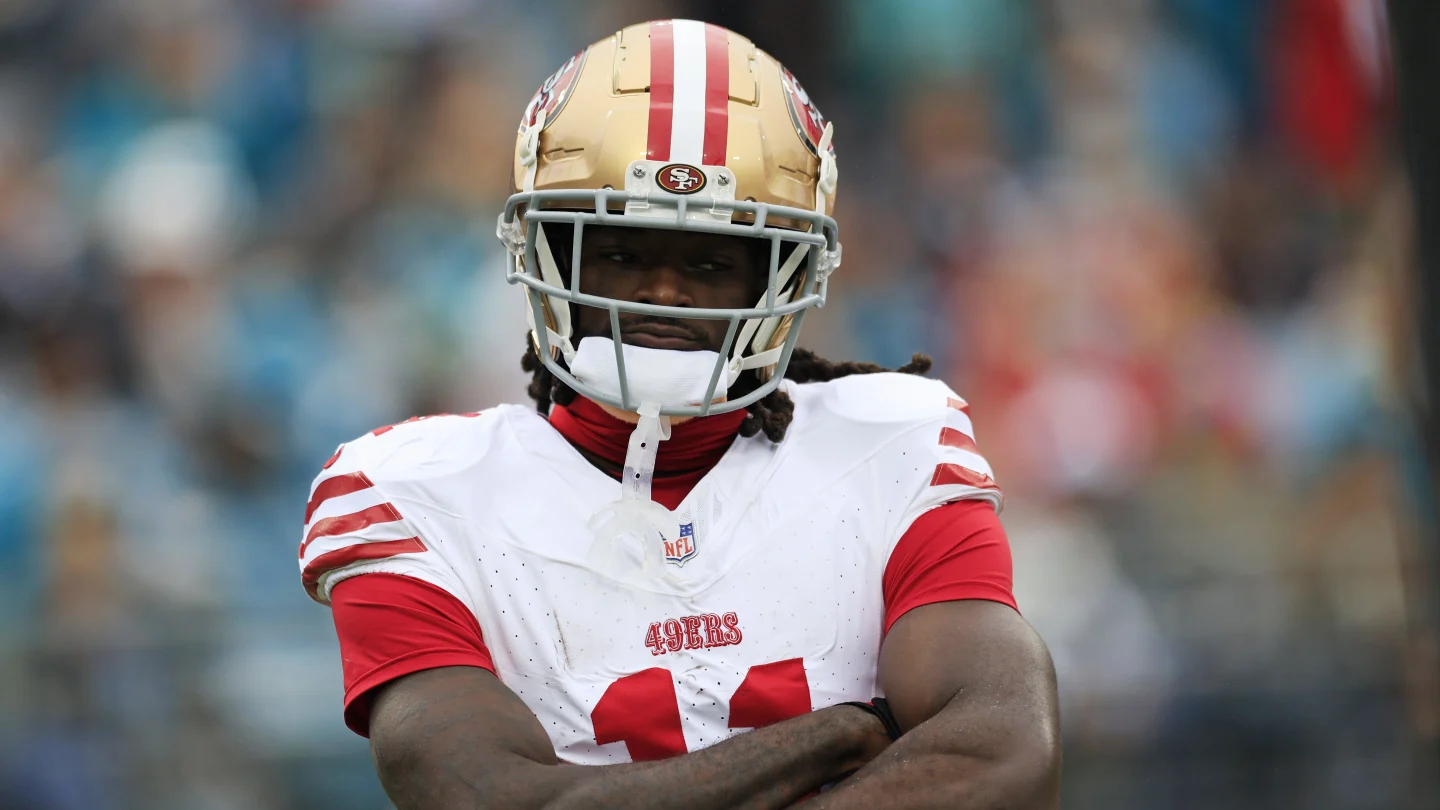Looking ahead to the 2024 season, the Indianapolis Colts appear poised to field a formidable offensive lineup, presenting opposing defenses with difficult strategic choices. The acquisition of talent under offensive coordinator Shane Steichen has significantly bolstered their prospects, especially when comparing their current roster to last year’s offerings. Amidst these promising developments, speculation has arisen surrounding Brandon Aiyuk‘s desire to leave the San Francisco 49ers, prompting discussions about whether the Colts should pursue a trade for the disgruntled wide receiver.
While Aiyuk may not be in the same elite category as Justin Jefferson, his recent performance demonstrates a commendable track record. Over the past two seasons, he has surpassed the 1,000-yard mark, amassing an impressive 1,342 receiving yards in 2023 alone, accompanied by an average of 7.5 touchdowns per season. These statistics place him ahead of Michael Pittman Jr.’s production over the same period, indicating Aiyuk’s potential to elevate the Colts’ offensive capabilities to a new level.
The primary question surrounding a potential trade for Aiyuk revolves around feasibility and strategic merit. Can the Colts accommodate his salary demands and integrate him effectively into their offensive scheme? Financially, the Colts are in a relatively stable position to maneuver, though committing substantial resources to two top-tier receivers could strain their salary cap flexibility. This consideration is particularly pertinent given their recent investment in Pittman’s contract extension. While they possess sufficient cap space at present, overextending themselves financially could restrict future roster flexibility and cap management.

Moreover, the decision to pursue Aiyuk involves broader strategic implications for the Colts. General Manager Chris Ballard, known for his prudent approach to roster building and draft capital preservation, would likely approach such a move cautiously. Acquiring Aiyuk would undoubtedly bolster their offensive firepower and align with contemporary trends favoring dynamic playmakers in key positions. However, the potential long-term implications, both financially and in terms of roster balance, necessitate careful evaluation.
Realistically, the hurdles to acquiring Aiyuk are substantial. The 49ers’ stance, Aiyuk’s contract demands, and the requisite draft capital all pose significant barriers. Furthermore, Ballard’s conservative approach and preference for homegrown talent through the draft further complicate the prospect of a blockbuster trade for a veteran receiver. Such a move would signify a departure from their usual strategy of building through the draft and developing young talent, potentially signaling a shift towards a win-now mentality.
Ultimately, while the idea of adding Brandon Aiyuk to the Colts’ roster is intriguing from a competitive standpoint, the practicalities and strategic considerations suggest it remains unlikely. The Colts would need to navigate considerable obstacles to secure his services, balancing short-term gains with long-term implications for roster stability and financial health. As they prepare for the upcoming season, the Colts will likely focus on maximizing their current roster’s potential while continuing to evaluate opportunities that align with their organizational philosophy and strategic vision for sustained success.

